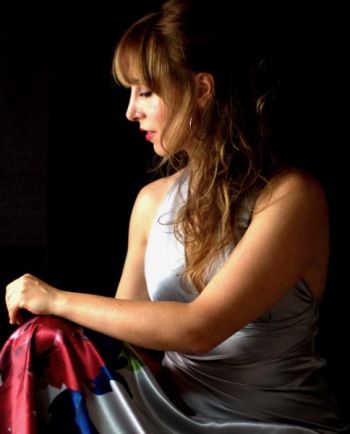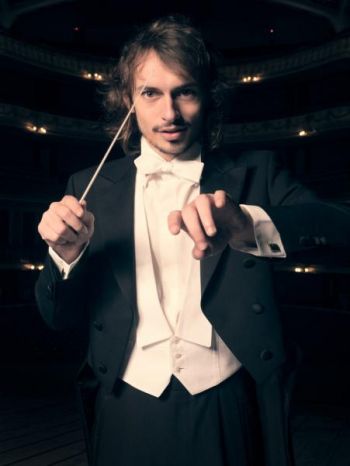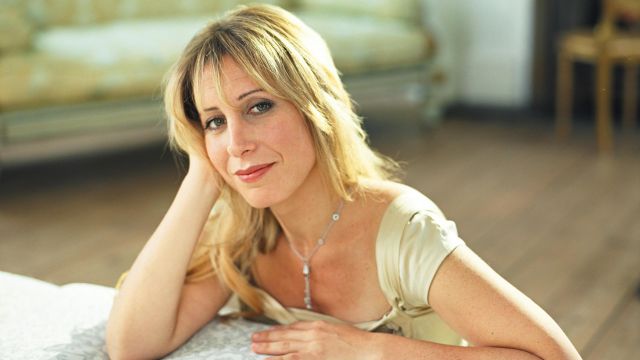SSO Romantic Adventures
Image (above): Ingrid Filter. Photographer: Gary Houlder
They’re dubbed the Romantic Generation of composers. All were born around 1810 and all died early, Robert Schumann, hallucinatory, suicidal and in mental anguish; Frederic Chopin from tuberculous, and Felix Mendelssohn at 38, melancholic and after a series of strokes.
This SSO Concert begins with Schumann’s most applauded orchestral work, Manfred: Overture, inspired by Byron’s poem about a lone, tortured hero who rejects the sins of humanity and now, secluded in his Gothic castle in the Alps, prepares to suicide.
 The Overture certainly captures Manfred’s yearning and Romantic alienation which also so tormented Schumann. It’s an often incoherent music, starting slowly, briefly lyrical but also jagged, juggling short, repeated motifs, yet it ends simply with such tender darkness.
The Overture certainly captures Manfred’s yearning and Romantic alienation which also so tormented Schumann. It’s an often incoherent music, starting slowly, briefly lyrical but also jagged, juggling short, repeated motifs, yet it ends simply with such tender darkness.
The star act is the Argentine pianist Ingrid Filter (pictured right, photographer: Anton Dressler) taking on Chopin’s fabulous Piano Concerto No.1 Op.11. The composer, virtuosic at barely 20, was the pianist himself for the Concerto’s premiere in his native Warsaw in 1830. He was then off to admiration in the Parisians salons, interestingly, abandoning orchestral music and writing only for the piano.
The SSO’s 90 musicians begin Chopin’s Concerto in a romantic, calm and melancholic mood but solemnity evaporates when the piano enters. Ingrid Filter’s finger-work achieves outstanding intricacy and intimacy and yet also thunders and trills down the keyboard, as she pounds the pedals, plays across her arms, and delivers with this orchestra a work of substantial scale. Her delicacy returns in a sparkling finale, playing a Polish krakowiak. It’s the kind of folk dance which Chopin’s scores so often incorporate and explains why in a Poland besieged by Russia he was such a nationalist hero.
 Brazilian conductor Eduardo Strausser (pictured left, photographer: Charles Brooks) is throughout a joy to watch, diminutive, often on his toes and so physically expressive gesticulating musical detail. This is especially so in the final work, Felix Mendelsohn’s so-called Scottish Symphony No.3, Op.56. Jewish and raised in a comfortable cultural family in Berlin, Mendelsohn loved the wild atmosphere of Scotland but, other than an overall sombreness, Symphony No.3 shows no other tartan tendencies.
Brazilian conductor Eduardo Strausser (pictured left, photographer: Charles Brooks) is throughout a joy to watch, diminutive, often on his toes and so physically expressive gesticulating musical detail. This is especially so in the final work, Felix Mendelsohn’s so-called Scottish Symphony No.3, Op.56. Jewish and raised in a comfortable cultural family in Berlin, Mendelsohn loved the wild atmosphere of Scotland but, other than an overall sombreness, Symphony No.3 shows no other tartan tendencies.
Through four interlinked movements, the second is a fleet-footed reminder of the composer’s (suitably Romantic and supernatural) A Midsummer Nights Dream, while his finale is sublime. The orchestral power is punctuated by interweaving contributions from the masses of strings, the brass and an outstanding wind section – often from soloists.
Strausser never lets the energy or pace flag but nor the clarity of each instrumental moment or section. The Enlightenment is all very well but we should also be grateful for the Romantics. And for Eduardo Strausser who is currently conducting extensively around Australia.
Martin Portus
Subscribe to our E-Newsletter, buy our latest print edition or find a Performing Arts book at Book Nook.

